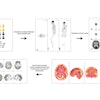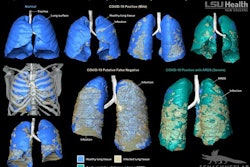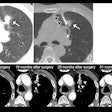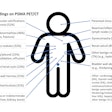Dear AuntMinnie Member,
The U.S. Food and Drug Administration (FDA) shed some light on its plan for regulating artificial intelligence (AI) software for medical use on January 12, and our story on the plan was the most-viewed article of this past week.
The FDA has felt that a new regulatory framework is needed to review AI software, which, due to its continuously learning nature, is fundamentally different from the relatively static software applications the agency has regulated in the past. The new document includes a draft guidance for AI developers as well as rules for evaluating and monitoring algorithms in the real world.
In other AI news, a survey found that when it comes to malpractice risk, laypeople may look favorably on physicians who use AI as part of clinical practice. Meanwhile, researchers from Canada presented their work this week on a machine-learning algorithm for classifying very small lung nodules on CT lung screening exams, while Florida researchers found that the combination of AI and radiomics can guide treatment of non-small cell lung cancer.
Get these stories and more in our Artificial Intelligence Community.
Echo spots heart disease from flossing
In our Ultrasound Community, we bring you a fascinating case report from Texas, in which clinicians stated that vigorous dental flossing released oral bacteria that led to infective carditis in a 63-year-old man. They detected the condition with echocardiography.
Also, researchers from France have shared a novel elastography-based technique for thyroid cancer screening that involves placing the scanner transducer on the patient's throat while he or she vocalizes the sound "eeee."
South Korean researchers are investigating the use of AI to provide quantitative analysis of breast ultrasound images, while an Australian group has found that ultrasound scans may help physicians predict which patients with severe ulcerative colitis won't respond to steroid treatment.



















